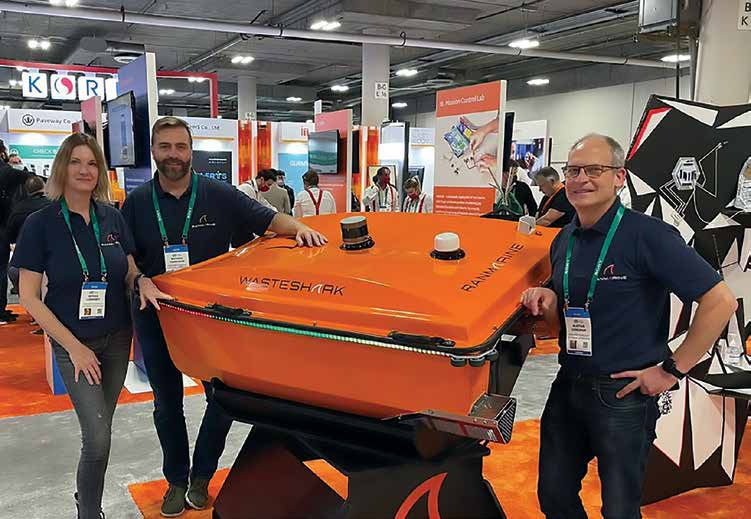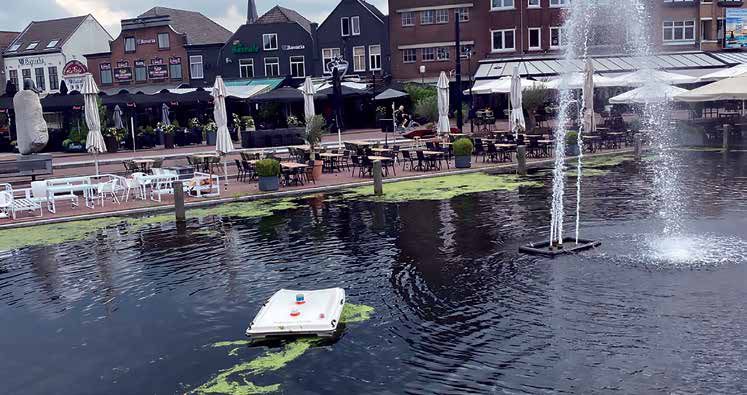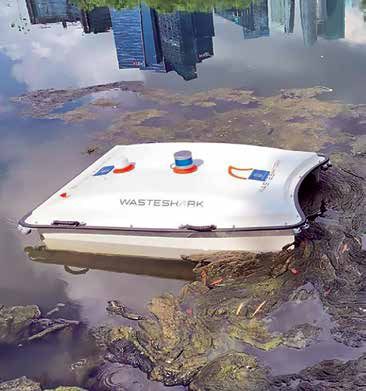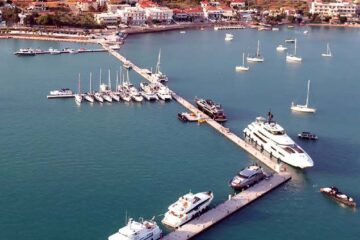Plastic marine litter is one of the biggest threats to ocean life and humans. Now that there is more plastic in the water than fish, new solutions are desperately needed to radically reduce the harmful effects of microplastics. That’s why the Dutch start-up RanMarine Technology came up with a solution to eradicate this pollution. The company invented multiple floating drones to clear waterways, canals, rivers and ports of plastic before it leaks into the ocean.
RanMarine Technology showcased the WasteShark USV (Unmanned Surface Vessel), a floating drone designed to remove harmful plastic waste from waters and return it to shore before it can do damage, at CES 2022.
Water quality analysis
The WasteShark is designed to intelligently harvest plastic and biomass waste from urban waterways in smart cities, ports and ports. In addition to waste harvesting the drone also collects critical water quality data. The drone can be controlled directly by an operator or used in autonomous mode. In this latter scenario, users can set the route and mission remotely via an online dashboard.
WasteShark’s features
With 180 liters (47.5 gallons) of capacity and an eight-hour runtime, this hardworking robot can remove 500kg (1,100 lbs) of waste a day. The WasteShark is also easy to use and deploy. Using 4G onboard communications and an easy setup process, launching multiple drones has been made deliberately simple and easy for customers. Additionally, the drone uses advanced battery technology ensuring emission-free operation on the water, and not adding to the water’s pollution. This makes the WasteShark one of the solutions leading the way in the fight against plastic.

SharkPod Mothership
RanMarine also introduced the SharkPod, the world’s first autonomous floating docking station for waste-clearing drones, at CES 2022. With the ability to deploy, dock and charge up to five Waste- Shark drones at any time, this latest tool in pollution- fighting technology will enable ports, harbors and cities to operate a 24-hour autonomous solution to remove floating waste from the water.
With the ability to remove 1 ton of waste per drone per day, RanMarine expects the SharkPod to be capable to remove up to 100 tons or more of debris and waste per month. With the prototype unit that will be deployed in 2022, among other places in the Port of Rotterdam, drones will be able to dock, discharge waste, recharge and redeploy on a continuous 24-hour basis, all from a centrally controlled online environment.
New approach to current problems
WasteShark was the brainchild of RanMarine founder and CEO Richard Hardiman. “Our WasteSharks offer a pragmatic solution for cleaning up the existing mess that is perpetuated on a daily basis, and effectively prevent waste from reaching the open ocean,” Hardiman said. “With the release of the SharkPod, we aim to see full time deployment of WasteSharks with zero emissions and greater and quicker capture of toxic plastics in our waterways,” Hardiman said. “With an ever-increasing plastic pollution challenge at hand, we need to reduce costs, increase capture rates and make these solutions ever more affordable and easier to deploy for every city and port globally.”
Existing customers
RanMarine’s clients span over twelve territories and are made up of civic and commercial entities including the Port of Houston, Disney theme parks, the United Nations and local and state authorities worldwide.
For more information, visit www.ranmarine.io
Republished from Marine Construction Magazine Issue V, 2022










